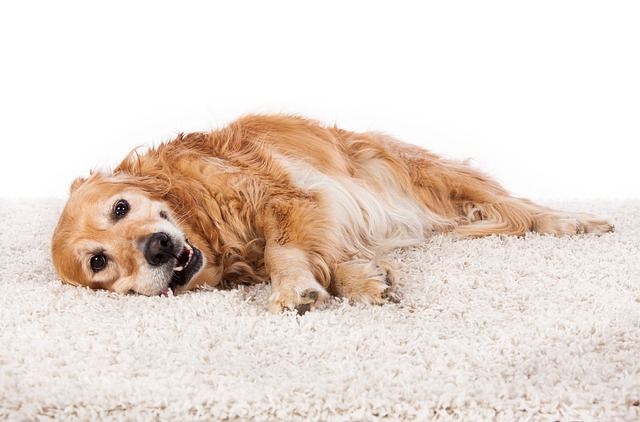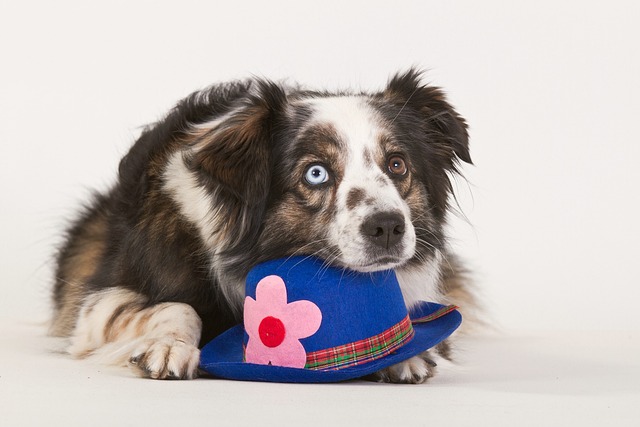
How do you treat flaky skin on dogs
If you’ve ever brushed your pup in the morning and noticed little white flakes floating onto the couch, you’re not alone. Flaky skin is one of the most
When we notice that our lively and lovely dog at home is infected with coccidia, our hearts are surely filled with distress and worry. Dogs are our irreplaceable and intimate companions in life. They give us their loyalty and love without reservation, but now the disease is causing them pain, and naturally, we are eager to relieve their troubles. At this moment, mastering scientific and effective nursing methods has become the key to safeguarding the dog's health.
Coccidia are single-celled parasites that usually inhabit the dog's intestines. Puppies, due to their immature immune systems and weak resistance, are particularly vulnerable to coccidia attacks. Adult dogs with low immunity, such as those that have just recovered from an illness, undergone long-distance transportation, or been under long-term stress, are also prone to coccidia infection. Once infected, the dog's body will show many uncomfortable symptoms. Frequent diarrhea is a typical manifestation. The state of the feces changes, which may become soft and unformed, and the color will deviate from normal.
Sometimes, it may even contain blood streaks or mucus, indicating that the dog's intestinal mucosa has been damaged. Lethargy is also a common symptom. The dog that used to be full of vitality and always around us, acting coquettishly and playing, now often lies quietly in the corner, showing little interest in any games or interactions. Its appetite significantly decreases. The enthusiasm for food that it used to have is gone. When faced with its favorite delicacies, it just sniffs them indifferently and then turns away. The dog's weight quietly drops within a short period, which is a dangerous signal from the body, reminding us that the dog's health condition is deteriorating.
Once we suspect that the dog is infected with coccidia, we must take it to a professional veterinarian immediately. The veterinarian will diagnose it by examining the feces. Through a microscope, the veterinarian carefully observes whether there are coccidia oocysts in the fecal sample to accurately determine whether the dog is infected with coccidia and the severity of the infection. After confirmation, the veterinarian will prescribe appropriate anti-coccidia drugs based on factors such as the dog's age, weight, and overall health condition.
 These drugs are specifically designed according to the physiological characteristics of coccidia and can effectively inhibit the growth and reproduction of coccidia until they are completely eliminated. When administering the medicine to the dog, we need to be patient enough. Many anti-coccidia drugs have a special smell, and with their keen sense of smell, dogs may resist taking the medicine. At this time, we can cleverly take advantage of the dog's love for food and mix the medicine into a small amount of its favorite canned food or delicious dried meat. However, we should note that we should not add too much food just to hide the smell of the medicine. Otherwise, if the dog doesn't finish eating, we cannot ensure that it ingests enough medicine, which will affect the treatment effect.
These drugs are specifically designed according to the physiological characteristics of coccidia and can effectively inhibit the growth and reproduction of coccidia until they are completely eliminated. When administering the medicine to the dog, we need to be patient enough. Many anti-coccidia drugs have a special smell, and with their keen sense of smell, dogs may resist taking the medicine. At this time, we can cleverly take advantage of the dog's love for food and mix the medicine into a small amount of its favorite canned food or delicious dried meat. However, we should note that we should not add too much food just to hide the smell of the medicine. Otherwise, if the dog doesn't finish eating, we cannot ensure that it ingests enough medicine, which will affect the treatment effect.
Dietary adjustment plays an important role in the nursing process of a dog infected with coccidia. After being infected with coccidia, the dog's intestinal mucosa is damaged, and its digestion and absorption functions are much worse than before. It urgently needs easily digestible and nutritious food to replenish energy and repair the intestines. The prescription food developed specifically for pets with sensitive intestines on the market is a good choice. This kind of food is designed with a special formula, and its nutritional components are more easily absorbed by the intestines, which can effectively reduce the burden on the intestines. At the same time, it is also crucial to appropriately supplement foods or preparations rich in probiotics. Probiotics are like the "guardians" of the intestines. They can regulate the microbial balance in the intestines, inhibit the growth of harmful bacteria, promote the reproduction of beneficial bacteria, and help the intestines recover health as soon as possible. For example, plain yogurt without xylitol or pet-specific probiotic powder can be fed to the dog according to the appropriate dosage. In terms of the feeding frequency, we should follow the principle of feeding small amounts multiple times to avoid overfeeding at one time and prevent indigestion caused by the overburdened intestines.
During the period of coccidia infection, the dog's body resistance drops significantly, so it is particularly important to create a warm, comfortable, and clean living environment for it. Prepare a soft dog bed, lay a clean and comfortable cushion, and wash and replace it regularly to prevent the growth of bacteria and other pathogens in the dog bed. Adjust the indoor temperature according to the seasonal changes. In cold seasons, a hot water bag can be placed in the dog bed or a pet-specific heating pad can be used to prevent the dog from catching a cold and worsening the condition. At the same time, keep the indoor air circulating. Fresh air helps the dog breathe smoothly and promotes its physical recovery.
Closely monitoring the dog's condition changes is an indispensable part of the nursing work. Carefully record details such as the shape, color of the dog's feces, and whether there are blood streaks every day, and at the same time, pay attention to changes in its mental state and appetite. If after a period of nursing, the dog's symptoms do not improve, or new abnormalities occur, such as frequent vomiting or an elevated body temperature, it is very likely that the condition has changed, and we must take it to see a doctor again immediately so that the veterinarian can adjust the treatment plan in a timely manner. Throughout the entire nursing process, our company is the best "medicine" for the dog. Spend more time with the dog, gently stroke it, communicate with it in a gentle voice, and let it feel that we are always by its side, giving it peace of mind and support, and relieving the anxiety caused by its physical discomfort.
Nursing a dog infected with coccidia cannot be completed overnight. It is a protracted battle that requires us to invest a great deal of patience and carefulness. Every time we administer medicine, every meal we feed, every careful arrangement of the living environment, and every moment of our company is filled with our deep love for the dog. With professional nursing knowledge and boundless love, we will surely be able to accompany the dog through this difficult time and let it regain its vitality.

If you’ve ever brushed your pup in the morning and noticed little white flakes floating onto the couch, you’re not alone. Flaky skin is one of the most

Pigmentary keratitis in dogs is a condition where dark, discolored patches form on the cornea, the clear outer layer of the eye.

If you’ve noticed your dog scratching more than usual—maybe gnawing at their paws or rubbing their face against the couch—you might start checking their skin for clues.

If you’ve ever watched your dog pad across hot asphalt in summer or crunch through icy sidewalks in winter, you’ve probably wondered how to protect those fuzzy paws.

That distinctive "scooting" across your favorite rug isn't just odd behavior - it's often your dog's way of telling you something's uncomfortable back there.

If you’ve noticed your dog’s nails are so long they curl under or make a loud “click-click” on your kitchen floor, you’re not alone.